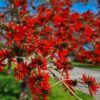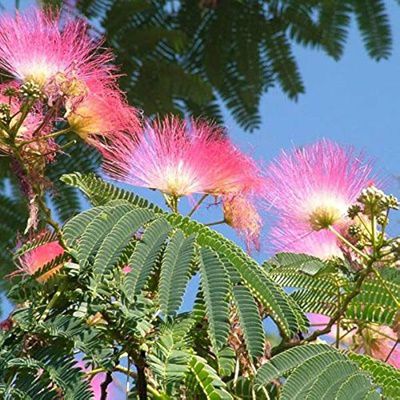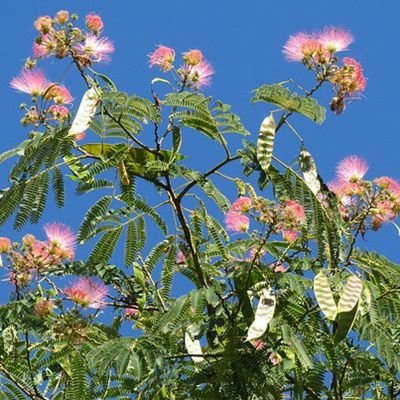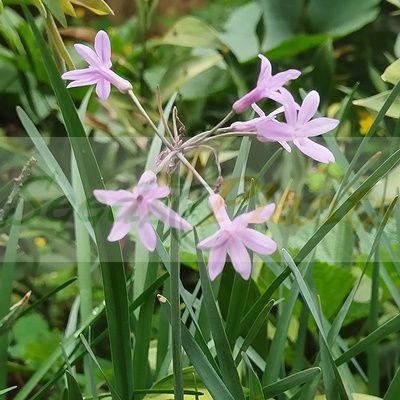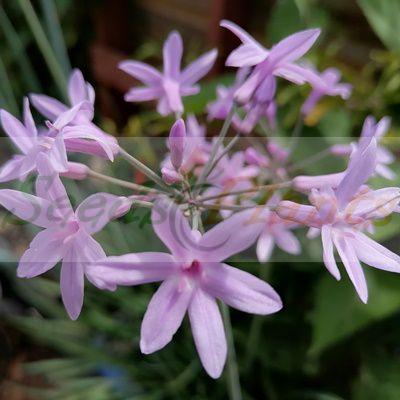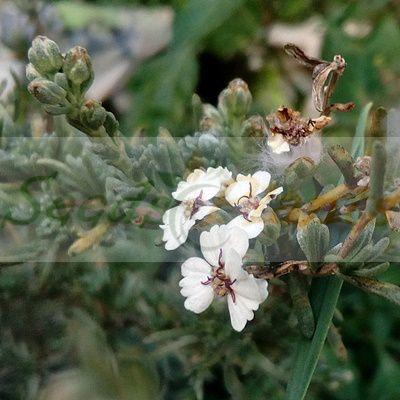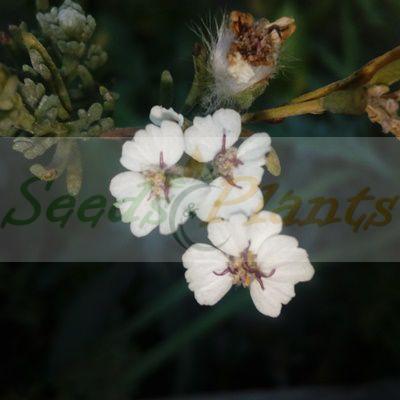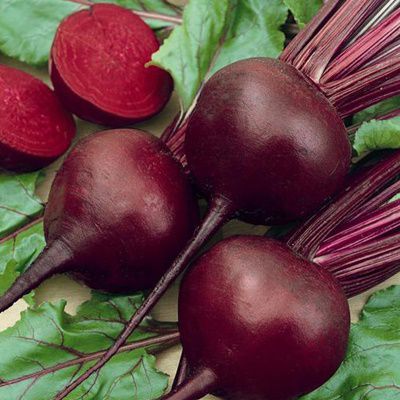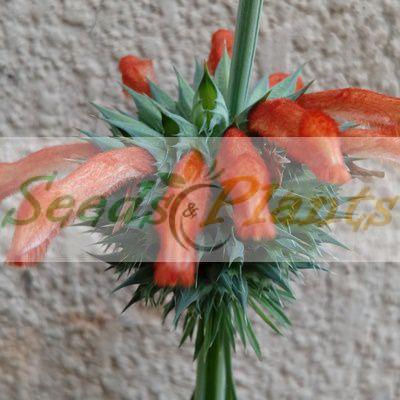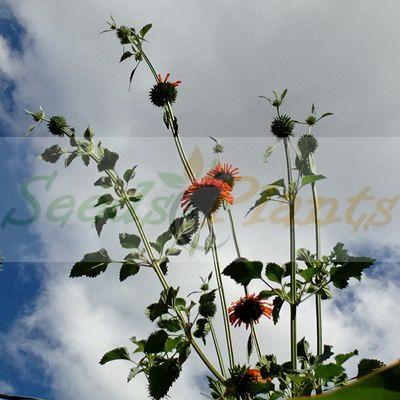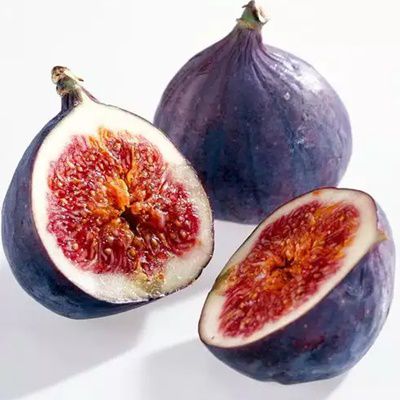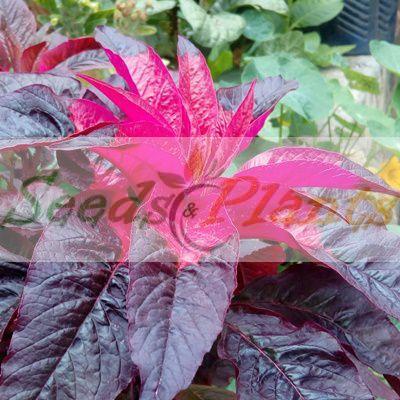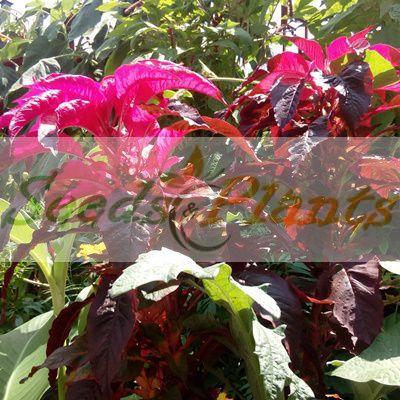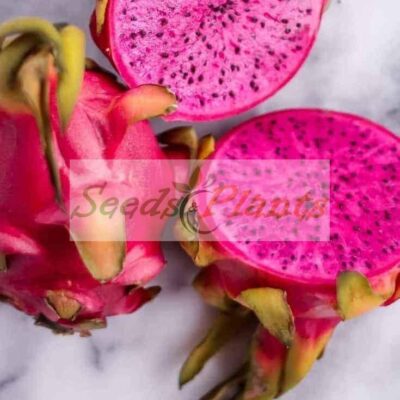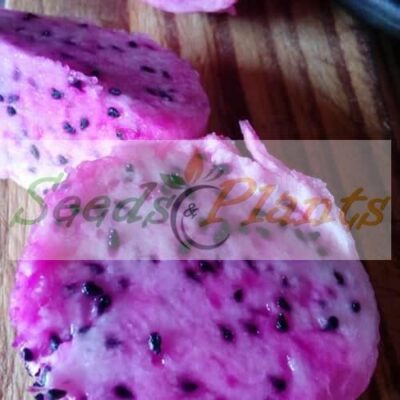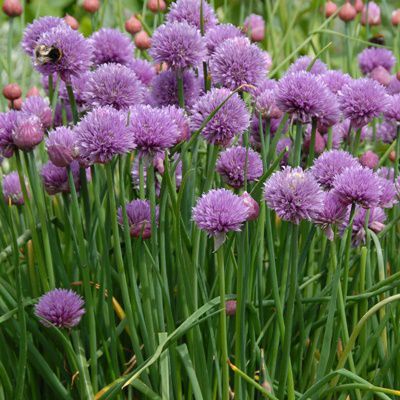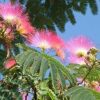🌳 Tree Quick Facts
Tree Info
- 🌍 Origin / Region: Asia
- 🌿 Foliage Type: Deciduous
- 📏 Mature Height: 4–7.6m, 7.6–12.2m
Growth Traits
- 🪴 Growth Habit: Tree
Growing Requirements
- 🌞 Sun Exposure: Full Sun
- ☀️ Growing Conditions: Drought Tolerant
Persian Silk Tree – 5 Seeds
(Albizia julibrissin)
R30.00
Persian silk tree is a highly ornamental tree with beautiful pink flowers. The leaves are fern-like in appearance and are very sensitive.
Common Names: Mimosa, Persian Silk Tree, Pink Silk Tree, Pink siris, Silk Tree.
Indoor Sowing: Spring and Summer.
Direct Sowing: Not Recommended.
In stock
🌳 Tree Quick Facts
Tree Info
- 🌍 Origin / Region: Asia
- 🌿 Foliage Type: Deciduous
- 📏 Mature Height: 4–7.6m, 7.6–12.2m
Growth Traits
- 🪴 Growth Habit: Tree
Growing Requirements
- 🌞 Sun Exposure: Full Sun
- ☀️ Growing Conditions: Drought Tolerant
Persian silk tree (Albizia julibrissin) is a species of tree in the Fabaceae family, native to Asia. It is a small to medium deciduous tree with a broad crown of level or arching branches, growing to 5–16 m. The leaves are fern-like in appearance and are very sensitive. The leaflets will close when touched, at nighttime or when exposed to extreme temperatures.
The fragrant flowers appear as pompom-like clusters of silky pink threads and measure about 1.5 inches long. Bees, butterflies, and hummingbirds are attracted to this flowering tree. The fruits are flattened legumes and contain 5 to 16 seeds. The tree is drought tolerant, tolerates summer heat, and it prefers full sun. The tree can tolerate a variety of soils and moisture conditions. It can be grown in containers.
Common Names: Mimosa, Persian Silk Tree, Pink Silk Tree, Pink siris, Silk Tree.
Growing Persian Silk Tree
Indoor Sowing: Spring and Summer.
Direct Sowing: Not Recommended.
- Scarify each seed gently with a file or rasp until the hard outer coating is slightly breached.
- Place the seeds in an insulated container and pour hot, but not boiling water, over the seeds.
- Seal the container and allow them to sit in the hot water for 24 hours.
- Dry the seeds and gently press them into the middle of a small pot filled with compost and perlite in equal amounts.
- Place the pots in a sunny window or outdoors in direct sunlight.
- Keep the soil mixture moist.
- Seeds can take anywhere from seven days to several months to germinate.
- Transplant the seedlings into a bigger pot once it becomes root bound and place the pot in full sunlight.
- Water weekly while young and getting established.
- Young plants are frost-tender and will not survive hard winters, so for the 1st year or two, it is best to provide protection against the cold.
Disclaimer
Medicinal Information:
All medicinal information on this website is for educational and informational purposes only and may not be construed as medical advice. The information is not intended to replace medical advice or treatment offered by healthcare professionals.
Seeds, Plants, Plant Cuttings, Geophytes and Dried Herbs:
In some countries and provinces, certain plants are deemed as invasive and are not allowed to be planted at all, whilst some plants are allowed to be grown only in certain areas or provinces. The onus is on you as the buyer to familiarize yourself with the regulations pertaining to your location, before purchasing any of our seeds, plants, plant cuttings, geophytes or dried herbs. We will not be held liable, should you purchase any seeds, plants, plant cuttings, geophytes or dried herbs. from us which are prohibited in your country or province.


